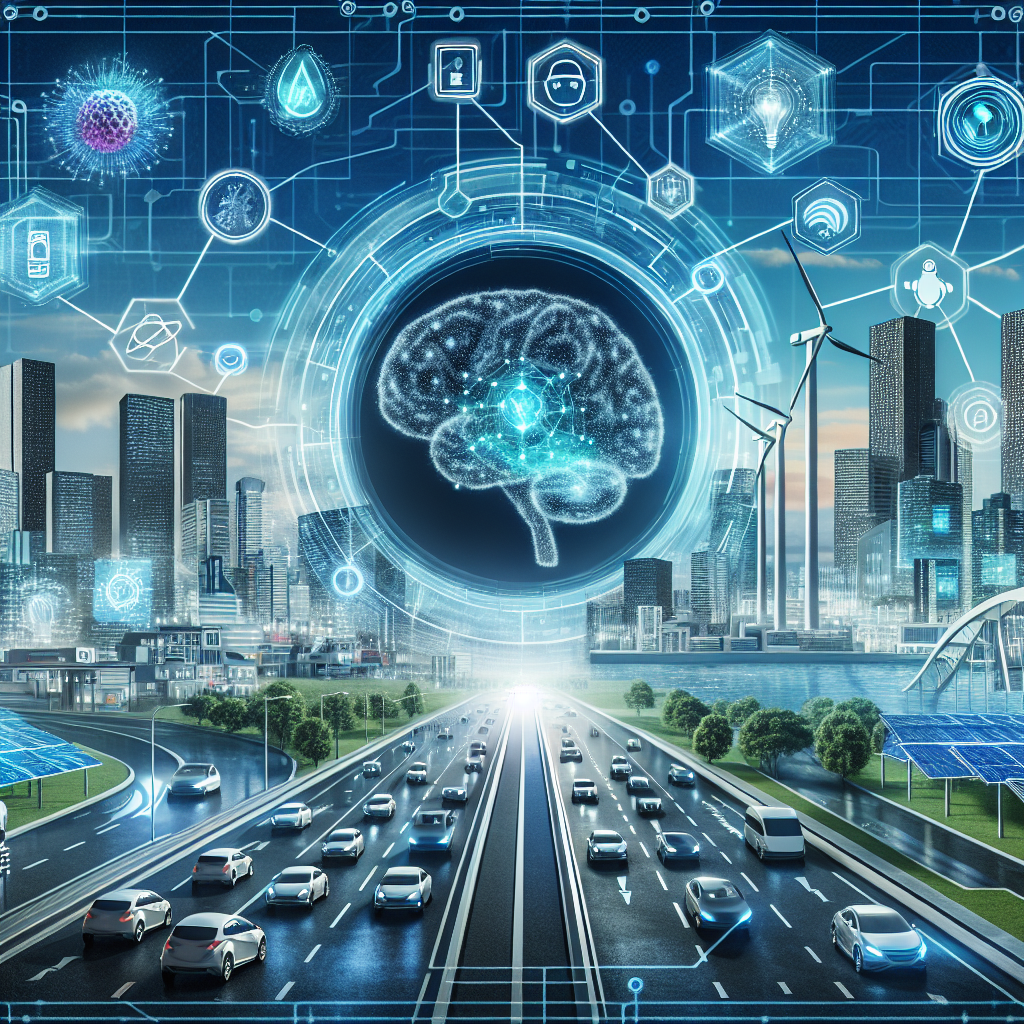Implementing AI Solutions for Smart Cities
Introduction:
As technology continues to advance, the concept of smart cities is becoming increasingly popular. Smart cities use technology and data to improve the quality of life for residents, enhance sustainability, and optimize the use of resources. Artificial Intelligence (AI) is a key technology that can help cities achieve these goals by analyzing large amounts of data and making intelligent decisions. In this article, we will explore how AI solutions can be implemented in smart cities and the benefits they can bring.
Benefits of AI Solutions for Smart Cities:
Implementing AI solutions in smart cities can bring a wide range of benefits, including:
1. Improved Efficiency: AI can analyze data from various sources, such as sensors, cameras, and social media, to optimize the use of resources and improve the efficiency of city services. For example, AI can help in predicting traffic patterns and optimizing traffic flow, leading to reduced congestion and improved air quality.
2. Enhanced Safety and Security: AI-powered systems can analyze data in real-time to detect and respond to security threats, such as crime or accidents. For instance, AI-powered surveillance cameras can automatically identify suspicious behavior and alert authorities, helping to prevent crime and ensure public safety.
3. Better Urban Planning: AI can analyze data on population trends, infrastructure usage, and environmental factors to help city planners make informed decisions about urban development. AI can also simulate different scenarios to predict the impact of new infrastructure projects on the city’s overall sustainability and livability.
4. Sustainable Resource Management: AI can help cities optimize the use of resources, such as energy, water, and waste management. By analyzing data on resource consumption and environmental factors, AI can suggest ways to reduce waste, increase energy efficiency, and promote sustainable practices.
5. Enhanced Citizen Engagement: AI-powered chatbots and virtual assistants can provide citizens with personalized information and services, such as public transportation schedules, weather updates, and government services. This can improve citizen engagement and satisfaction with city services.
Implementing AI Solutions in Smart Cities:
To implement AI solutions in smart cities, cities need to follow a systematic approach that includes the following steps:
1. Identify Key Challenges: Cities should first identify the key challenges they are facing, such as traffic congestion, pollution, or public safety issues. By understanding the specific needs of the city, they can better tailor AI solutions to address these challenges.
2. Collect and Analyze Data: Cities need to collect data from various sources, such as sensors, cameras, and social media, to feed into AI algorithms. This data can include information on traffic patterns, air quality, energy consumption, and more. By analyzing this data, AI can provide insights and recommendations for improving city services.
3. Develop AI Algorithms: Cities can work with AI developers and data scientists to develop algorithms that can analyze the collected data and make intelligent decisions. These algorithms can be used to optimize traffic flow, detect security threats, and predict future trends.
4. Implement AI Solutions: Once the AI algorithms are developed, cities can implement them in various applications, such as traffic management systems, surveillance cameras, and smart energy grids. By integrating AI into existing infrastructure, cities can improve efficiency and effectiveness in delivering services to residents.
5. Monitor and Evaluate: Cities should continuously monitor the performance of AI solutions and evaluate their impact on city services. By collecting feedback from residents and analyzing key performance indicators, cities can identify areas for improvement and make necessary adjustments to optimize AI solutions.
Frequently Asked Questions (FAQs):
Q: How can AI help improve public transportation in smart cities?
A: AI can analyze data on traffic patterns, public transportation schedules, and passenger demand to optimize routes, schedules, and capacity. AI-powered systems can also provide real-time updates on delays, disruptions, and alternative routes to improve the overall efficiency and reliability of public transportation.
Q: What are some examples of AI applications in smart cities?
A: Some examples of AI applications in smart cities include AI-powered traffic management systems, smart surveillance cameras, predictive maintenance for infrastructure, and personalized citizen services through chatbots and virtual assistants.
Q: How can AI help in promoting sustainability in smart cities?
A: AI can help cities optimize the use of resources, such as energy, water, and waste management, to promote sustainability. By analyzing data on resource consumption and environmental factors, AI can suggest ways to reduce waste, increase energy efficiency, and promote sustainable practices.
Q: What are the potential challenges of implementing AI solutions in smart cities?
A: Some potential challenges of implementing AI solutions in smart cities include data privacy concerns, cybersecurity risks, and the need for skilled AI professionals. Cities need to address these challenges by implementing robust data protection measures, ensuring cybersecurity protocols, and investing in AI talent development.
Conclusion:
AI solutions have the potential to transform smart cities by improving efficiency, enhancing safety and security, promoting sustainability, and enhancing citizen engagement. By following a systematic approach to implementing AI solutions, cities can unlock the full potential of AI to address key challenges and improve the quality of life for residents. As technology continues to advance, AI will play an increasingly important role in shaping the future of smart cities.

